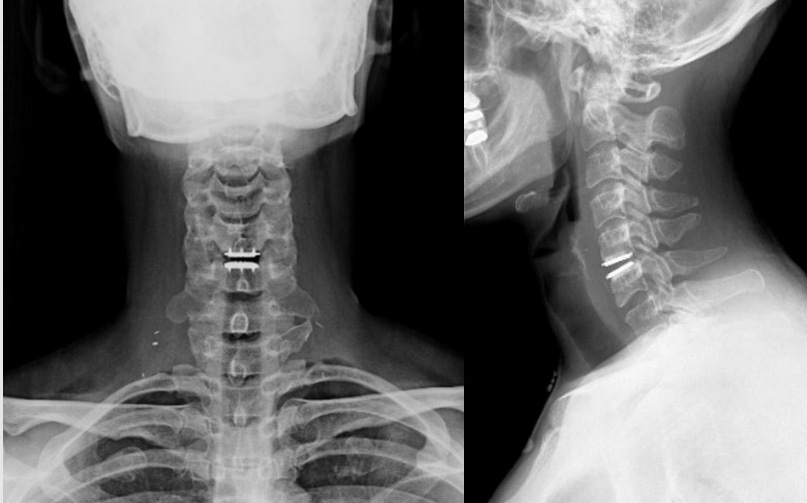Spinal surgery can be overwhelming. However, if your medical practitioner or surgeon recommends it, then you must undoubtedly go for it. Your spinal disc can get damaged due to conditions like cervical disc herniation and osteophytes, which encroaches upon the nerve root. When your surgeon performs cervical total disc replacement surgery, they replace your damaged spinal disc by implanting an artificial disc. This surgery is also called artificial disc replacement surgery. Read further to know all about this surgery.
Why is artificial disc surgery required?
Cervical discs begin to bulge or collapse with age. It mostly happens to people nearing the age of 60. Loss of space between your cervical vertebrae and the breakdown of the cervical spine occurs due to wear and tear or cervical disc degeneration. But, healthcare providers have observed that some people show more symptoms from cervical disc degeneration. The symptoms include numbness or “pain and needles” in your arm, weakness of your shoulders, pain that travels down into your shoulders or arms, headache, neck pain and neck stiffness.
How to get cervical disc replacement surgery?
Before proceeding with the surgery, it is highly recommended to consult your healthcare provider. Your surgeon might ask you about your medications. You must inform your healthcare provider about the over-the-counter medications and herbal supplements that you consume. To avoid the increase of bleeding and thinning of blood, you might be asked to stop taking aspirin and any other thinners. You must also inform if you or anyone in the family has any history of reaction to general anesthesia. In case you smoke, your medical practitioner will suggest you stop smoking before the surgery. It will also be recommended to avoid smoking for a while after the surgery. You will probably be instructed on when to stop eating and drinking. Generally, people who opt for this surgery don’t eat or drink after midnight on the night before their procedure. You can ask your surgeon if you can consume any regular medications with a small sip of water on the day of your surgical procedure.
What happens during the artificial disc replacement surgery?
Before the procedure begins, an intravenous line (IV) will be placed inside your vein to receive fluids and medications. You will feel relaxed and sleepy. This procedure is performed when the patient is in general anesthesia. Additionally, a tube will be inserted into your throat to supplement breathing and protect the airways. Usually, this procedure lasts a few hours. Read further to know what happens once the procedure begins.
- Your heart, blood pressure and oxygen levels will be checked with the help of the monitors.
- The surgeons will clean the area of the neck for incision with a special solution. This solution is utilised to kill germs on the skin.
- A surgical cut or incision is made on the front and side of the neck.
- The necessary structures of the neck will be moved aside to clearly view the bones of the vertebrae and cervical disc.
- The cervical disc will be removed for replacement.
- The artificial disc is placed into the empty disc space.
- Your incisions will be closed with stitches under the skin. To minimise scarring, the skin is closed carefully.
- A dressing will be applied over the surgical cut or incision. A rigid or soft neck collar will be put on your neck for restricting motion. Finally, you will be taken to the area of recovery.
What happens after the artificial disc surgery?
You might experience pain after the cervical total disc replacement surgery. But you will be given medication for the pain in the area of recovery. You will be kept in observation until you recover from anesthesia. Some people spend a day or two in the hospital. During your stay in the hospital, intravenous fluids will continue until you can drink fluids by mouth.
Furthermore, you will be encouraged to get out of bed and move around. You must talk to the healthcare team if you have fever, headache, numbness, difficulty swallowing, bleeding and difficulty breathing. They will instruct you about what you must do after the surgery.

